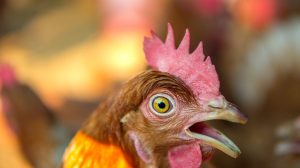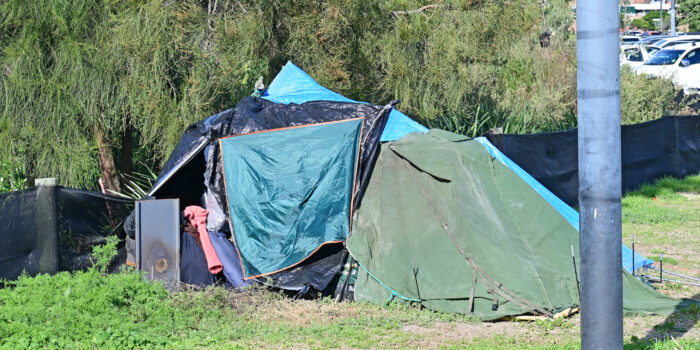The ins and outs of table poultry production came under the spotlight in a recent dispute that arose out of a northern New South Wales chicken grower running short of feed for 200,000 adolescent fowl.
 Inghams – Australia’s largest broiler chicken processor – supplied batches of chicks to Avoca Vale Farm near Casino and delivered all feed required along the way, for the farm to grow the birds to a mature weight.
Inghams – Australia’s largest broiler chicken processor – supplied batches of chicks to Avoca Vale Farm near Casino and delivered all feed required along the way, for the farm to grow the birds to a mature weight.
Chickens were turned over through the farms six sheds every 6-7 weeks, when the processor called at the farm to collect the adult stock to prepare them for consumption.
As Avoca’s owner, Frank Hannigan – also a NSW solicitor – was obliged to ensure that sufficient feed was kept up to the birds, that they achieved their optimal adult weight and that animal welfare standards were observed.
Inghams’ grower agreement required among other things’ that growers strictly observe the requirements of its “Manual”, a 226-page specification “governing all aspects of the growing of chickens in the minutest technical detail”.
For all of this, Hannigan was paid a growing fee of around 85 cents per bird plus an RSPCA surcharge on each, of an additional 5c.
In August 2017, Quinton Hildebrand of Inghams notified Hannigan of the company’s termination of his growing agreement which the solicitor-farmer had expected to run its full five-year term ending in February 2021.
That decision appears to have been prompted by two incidents.
In early 2016, 24,000 broiler chicks had allegedly been lost out of one batch “due to a smother event”.
A second incident – re-delivery of adult birds to the processor in July 2017 at a weight “less than what was predicted” – was cited in the termination grounds.
A large number of birds had – according to Inghams – been deprived of feed for between 19 and 42 hrs due to Hannigan’s “gross negligence” and an “unacceptable breach of Animal Welfare Standards”.
Denying those claims, Hannigan sought a declaration in the NSW Supreme Court that the termination notice had no effect.
At the heart of the dispute that occupied the court for 6 days in August and September 2018, was how the shortfall in the livestock feed supply had occurred.
The Inghams growing system relies on it having on hand a constant supply of feed of each of the grades required as the birds on each farm mature. The company operates its own feed mills and engages a network of contractors to deliver feed to growers at its cost, usually within a period of well less than 12 hours of an order being recieved.
On examining the July 2017 Avoca feed delivery records, Justice Stephen Robb discovered there had been a shortfall of 12 tonnes of feed over four 41 tonne loads.
And because the delivery contractor for Avoca omitted to send notice of an order through to Inghams’ feed mill, another 41 tonnes was not delivered at all.
When the feed emergency for the last 2 growing days for the July 2017 batch was discovered, the farm requested an urgent delivery that was met with a response that no feed would be available for at least another two days.
Who then was responsible for the re-delivery of the birds below adult weight, given their subpar condition was a direct consequence of the failures in the feed delivery system?
In a 65 page judgment, Justice Robb concluded Inghams “was the primary cause of any non-compliance” by reason of its failure to observe its contractual obligation to deliver feed ordered by the grower.
Under those circumstances Hannigan could certainly not be considered to have been negligent.
So what, argued Inghams.
It asserted that there had in fact been no grower contract in existence – but merely a “grower relationship” that could be terminated by it “at will” – because it had not signed the agreement returned to it for that purpose by Hannigan.
It pointed to the statement in the agreement that it was intended to come into existence upon both parties signing it.
“It does not [however] follow that Inghams could not be bound,” so ruled the court, “if the parties in the interim conduct themselves in a manner that would cause the reasonable observer to conclude that they must have accepted that their relationship was governed by the agreement”.
“Growing of chickens by mass production must be a highly organised operation,” noted the judge. “What’s involved in delivering 200,000 baby chickens to a grower and then hoping that in due time the grower would redeliver mature birds in optimal condition for processing, will cast substantial doubt over” the so-called arrangement contended for by Inghams.
Having decided the grower agreement did exist, the court then had to decide if any of its fundamental terms had been breached.
The judge was not satisfied that the obligation to observe the Animal Welfare Standards was a fundamental term of the grower agreement.
Despite Inghams’ statement in its contract termination notice that it had “reported the issue to the RSPCA”, the company led no evidence on the point and there was no suggestion that any consequences followed from the alleged non-compliance with the standards.
Neither was the obligation to observe every obligation in the manual – because it was so vast – fundamental.
It was “untenable,” noted the court, “that the parties entered into the contract on the basis that every requirement in the manual had to be strictly observed”.
After all, the manual itself mandated a specified adult weight for each chicken but also specified a mechanism for adjusting the grower fee to the extent any birds were underweight.
Given the findings of no negligence and no breach of contract, the grower was awarded the declaration that the parties were bound by the grower agreement until 2021.
Francis Gregory Hannigan v Inghams Enterprises Pty Limited [2019] NSWSC 321, Robb J, 29 March 2019





